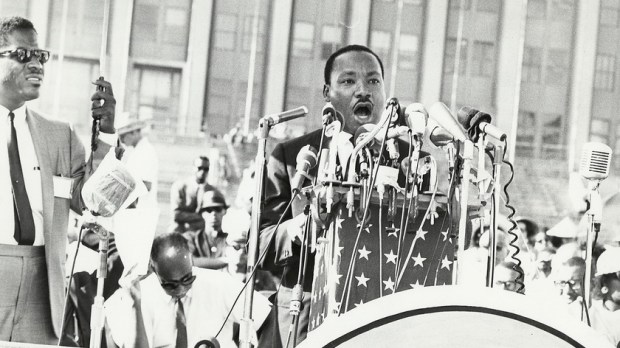Wednesday marks the 50th anniversary of the assassination of Rev. Dr. Martin Luther King, Jr. Five decades since the civil rights leader was gunned down in Memphis, Tennessee, at the age of 39, fully half of all Americans believe that only some of his goals have been accomplished.
Only a third of Americans believe that all or some of King’s goals have been accomplished, says the CBS News poll.
Nevertheless, a vast majority of all Americans—including 90% of African-Americans and 78% of white Americans—call the Nobel Peace Prize laureate a “very important figure in American history,” the poll found.
Black Americans were slightly more skeptical that King’s goals have been realized, 50 years since his death.
“While 59 percent of white Americans think just some or almost none of Dr. King’s goals have been achieved, that rises to 71 percent among black Americans,” CBS said.
A Baptist minister, King’s activism was informed by Christianity and the non-violent approach he admired in Mahatma Ghandi. Coming to prominence with the 1955 Montgomery bus boycott, in 1957 he became the first president of the Southern Christian Leadership Conference (SCLC). With the SCLC, he led an unsuccessful 1962 struggle against segregation in Albany, Georgia, and helped organize the nonviolent 1963 protests in Birmingham, Alabama. He also helped organize the 1963 March on Washington, where he delivered his famous “I Have a Dream” speech.
After winning the Nobel Peace Prize in 1964 for combating racial inequality through nonviolent resistance, he helped to organize the 1965 Selma to Montgomery marches. The following year he and the SCLC took the movement north to Chicago to work on segregated housing.
In his final years he expanded his focus to include opposition towards poverty and the Vietnam War. In 1968, King was planning a national occupation of Washington, D.C., to be called the Poor People’s Campaign, when he was assassinated by James Earl Ray on April 4 in Memphis.

